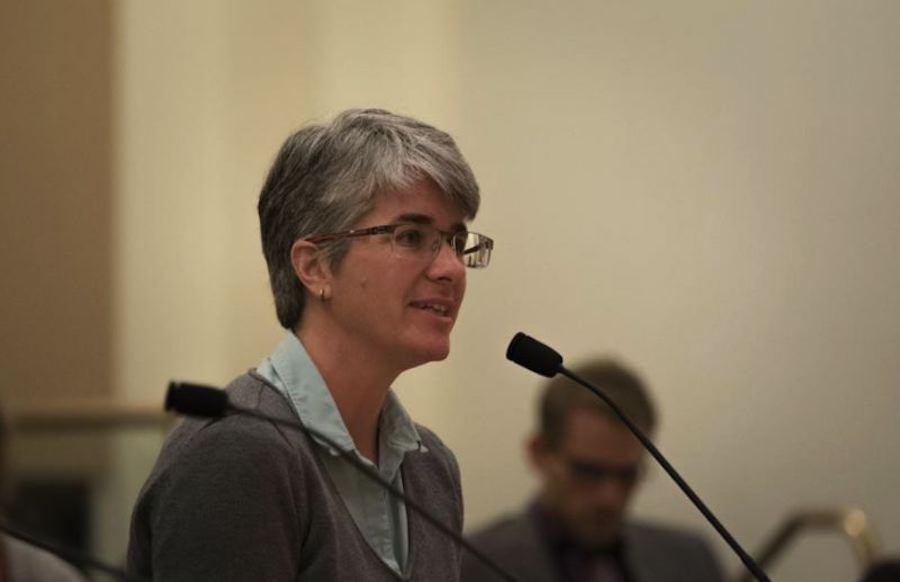
As monkeypox continues to spread in Multnomah County, health officials are working to provide a short supply of vaccines to people on a growing waitlist.
As of Tuesday, Aug. 16, there were 1,500 people on the county's waitlist for the vaccine, called JYNNEOS, according to county officials. That's up from 500 people a month ago.
Due to a national shortage of vaccines, the Oregon Health Authority is limiting doses to people considered high-risk for monkeypox, also known as hMPXV.
"I hope that as we have more vaccine, the eligibility criteria will become more broad," Kim Toevs, communicable disease and harm reduction director for the county, told the board of commissioners during a briefing Tuesday. "When it does, it will become a lot more simple."
High-risk people include those who've had close contact with someone with monkeypox, people who've had sex with someone in the past two weeks who has been diagnosed with the disease and people who had multiple sexual partners in the past two weeks in an area with community transmission of the virus.
Oregon was expected to receive a shipment from the federal government last week that would add 5,000 vials of the vaccine to the county's inventory, according to county officials.
Last month, OHA officials increased the supply of vaccines for Multnomah County, enabling the county to hold twice-weekly community vaccine clinics.
Also helping the county's efforts to limit the spread of the virus is a change in how the vaccine is administered. Earlier this month, federal health officials announced a new injection strategy, in which the vaccine is injected between layers of skin rather than into fat, increasing the number of doses per vial from one to five.
Toevs acknowledged Tuesday that the response to the monkeypox outbreak hasn't been perfect.
The limited supply of vaccines and a shortage of staff for the county's vaccination clinics have made it difficult to contain the virus.
"There's certainly more we could have done if we had more capacity," Toevs said.
She said health department staff have been applying lessons learned from the COVID-19 pandemic to its monkeypox response, leaning on the relationships they've built across county departments and in the community.
"The teams are tired, but they're working really hard," Toevs said. "The teams are working incredibly effectively and efficiently. I'm just really proud of them and I think our response so far has been solid."
There were 116 cases of monkeypox statewide as of Wednesday, Aug. 17, with 73 of those cases in Multnomah County, according to OHA.
In addition to vaccinations, the county is focusing on testing people who develop symptoms so they can isolate, contacting people who may have been exposed to someone with the disease and encouraging people who are most at risk to take steps to protect themselves.
The disease spreads most easily by direct skin contact with rashes or sores people infected with the virus develop. It can be spread less readily by sharing bedding or clothing or from having prolonged close respiratory contact with infected people.
The group most heavily impacted by the virus has been gay, bisexual and other men who have sex with men. Health officials emphasize that while that group has been the most impacted, the virus can infect anybody. There's nothing specific about people who have sex with men that puts them at higher risk. Gay, queer and trans communities have simply been the first socially connected groups affected, health officials say.
The county created recommendations specifically for the gay, queer and trans communities that include ways to reduce the likelihood of transmission, how to communicate with sexual partners, how to identify an infection and resources for access to testing and vaccines.
Health department staff have met with LGBTQ community organizations and groups that work with people of color to help educate vulnerable people, according to county officials.
"I appreciate the effort to tailor messaging," Commissioner Sharon Meieran said. "Some people in groups at the highest risk have a lot of fear and misinformation and don't know where to go."
Another group that has been disproportionately affected by the virus so far is people identifying as Hispanic. Twenty-seven percent of cases belong to the group, according to OHA data.
Toevs said the county needs to be ready in case the disease begins to increasingly affect different communities. "Obviously, our strategies will change," she said.
Anyone exposed to the virus or who may need a vaccine is being advised to call the county's health department call center at 503-988-8939.
For more information about monkeypox and how to protect against it, visit the county's website.
Max Egener, a reporter for The Portland Tribune, can be reached at [email protected]. This article is used with permission of Pamplin Media Group. Read more from Oregon’s largest source of independent local news at pamplinmedia.com.

